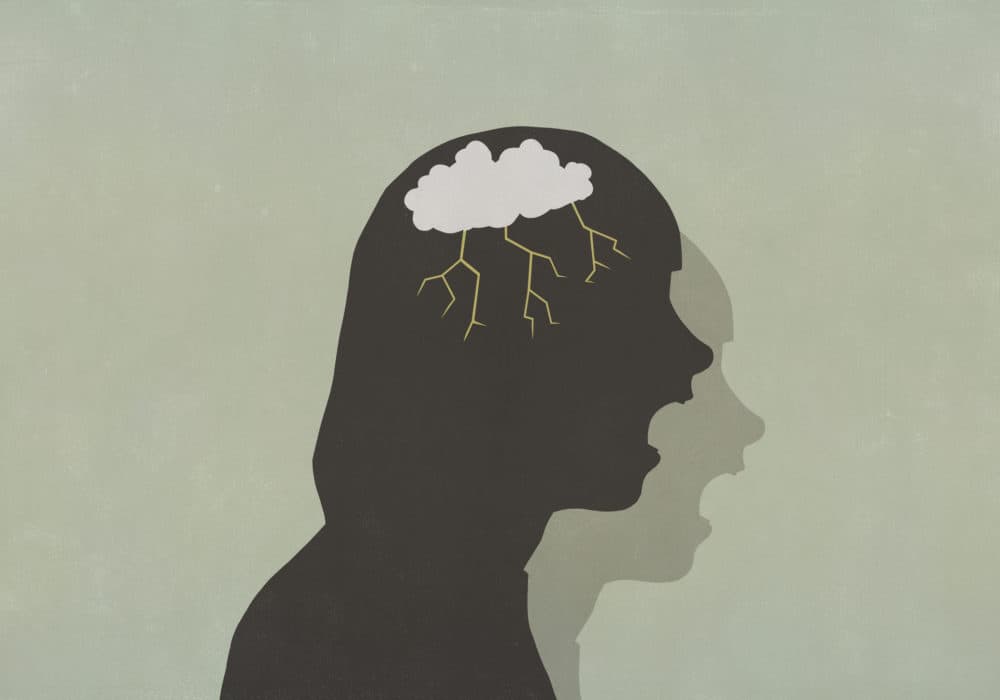Advertisement
Commentary
Understanding (and taming) your COVID anger

When the pandemic began, we all thought this would be temporary. With a burst of energy, we rallied together and hunkered down, expecting that life would eventually return to normal. But the weeks became months, and the months became two years. Losses and grief accumulated, and we missed out on the chance to reschedule postponed events and projects.
Along the way, we had glimpses of what life used to look like, and we were buoyed by profound relief when the vaccines arrived around this time last year. We held onto hope that COVID would eventually fade and become a distant memory.
Then came the delta variant. And then omicron forced a reckoning.
Suddenly, the virus was everywhere. Getting sick seemed inevitable — even the most cautious and risk-adverse succumbed to breakthrough infections. We were supposed to be assuaged by news that the illness would be mild, and the wave's peak would fall as fast as it rose. And yet suddenly, everyone seemed … mad. Furious. On the brink of rage.
As a developmental neuropsychologist, I often work with young people who struggle to regulate their emotions. When I talk to their caregivers, we focus on identifying triggers for meltdowns. And at least three culprits, that spark anger at any age, also apply to the current moment.
We’ve all had quite enough of COVID. We’re understandably angry, but what do we do with it?
Exhaustion. Any parent of a toddler can tell you about a nuclear evening following a napless afternoon. We are all currently exhausted from being stuck in a suspended state of anxiety. We’d like to make definite plans. We’d like to wake up in the morning and know that the tickle in our throat is just allergies. We’d like to listen to the news and not hear about future variants. We don’t want to talk about “return to work” anymore. We’ve either resigned ourselves or reached a new — albeit tenuous — equilibrium with our current situation.
Cognitive overload. COVID has completely transformed the way that we live. We wear masks. Hugs are scarce. Lots of professional engagements happen over zoom. Taking a COVID test before seeing friends is a thing we do now. Every one of those changes, no matter how small, required a series of decisions and sequence of actions that cost us energy and time. The unpredictability of the pandemic foreshortened our timelines, forcing us to make and then re-make decisions as circumstances changed. We took on new responsibilities while still juggling old ones. So few aspects of our lives run on automatic pilot anymore, leaving many of us feeling chronically overwhelmed.
Perceived injustice. We really thought we’d be done with this by now. Plenty of us played by the rules, believing that our actions would protect ourselves and our communities. We thought we’d eradicate this virus. After all this time and effort, the idea that COVID is still here — and will be with us indefinitely — seems wholly unfair. The fact that omicron was “mild,” paradoxically made it worse, by prompting questions about whether two years of sacrifice and loss was even worth it.

Given this combination of factors, it’s not surprising that a video of mothers letting out a primal scream recently went viral. It also helps to explain why there has been a rise in aggressive behaviors, like kids tearing up middle school bathrooms and grown men fighting on airplanes.
We’ve all had quite enough of COVID. We’re understandably angry, but what do we do with it?
Anger is a primal emotion arising from deep areas within the brain. The neural circuits activated by anger overlap with those activated by fear and sadness. Like fear and sadness, anger is an emotion that most of us would rather not experience, but is nonetheless important in helping us to navigate our world. Channeled appropriately, anger can be a catalyst for adaptive change.
Using anger as a positive force, though, first requires recognition and acceptance of its presence, and finding healthy ways to release it. While a temper tantrum can sometimes feel cathartic, untamed anger hijacks our executive functions, those higher-order cognitive skills that help us with planning, organization, reasoning and efficiency.
Advertisement
We need these cognitive skills to handle our current environment. In some ways, this phase of the pandemic seems even more characterized by uncertainty and conflict about how to approach it. Should towns lift their mask mandates in schools? Should vaccines be required in the workplace? These are thorny questions without easy answers.
Untamed anger hijacks our executive functions, those higher-order cognitive skills that help us with planning, organization, reasoning and efficiency.
Trying to make decisions with unresolved anger makes us vulnerable to faulty thinking patterns. One of these, “all or nothing” thinking, reduces problems into a series of “yes or no” questions and “either or” scenarios. It’s our brain’s way of eliminating the complexities of ambiguity and nuance. So many of the difficult conversations about COVID have been framed this way — dividing groups of people into two camps, rather than considering that most attitudes exist along a continuum, and may shift depending on context. Finding the middle ground helps to release the tension created by polarization – it also results in greater mental flexibility.
Anger also fuels attribution biases, or incorrect judgments about what others believe and how they act. A common one is to underestimate the impact of someone else’s situation and leap to conclusions about their character. Right now, some people are ready to abandon their masks and go clubbing, others need more time to adjust. Neither is inherently better or worse. But anger we harbor may lead to less tolerance of people different than us. This risk is compounded by two years of relative social isolation, which makes it even more important that we find common ground with others.
As we transition to the next phase of living with COVID, we must first wrestle with the anger that will inevitably bubble up in our brains. Unaddressed, we won’t be able to do our best thinking about the problems we currently face – nor are we likely to feel good about ourselves and our communities. Working through those feelings will allow us to move from “stuck to unstuck,” freeing our minds to re-establish greater mental flexibility and social connectedness.
So, now’s the time to recognize your anger and find new ways to let it go — whether it’s exercise, talking with friends, humor — and yes, a well-timed primal scream. Those moms are onto something.

